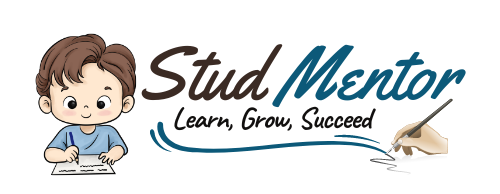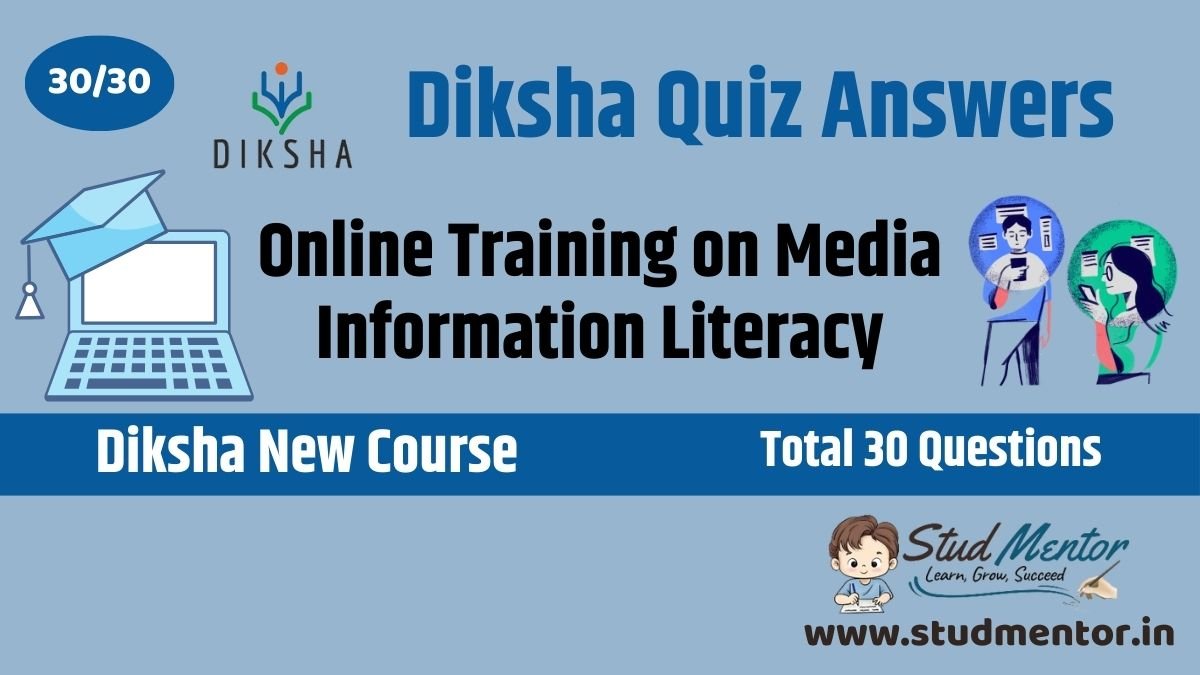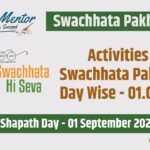In this article we providing information regarding latest Quiz Answers – Online Training on Media Information Literacy 2024
Quiz Answers – Online Training on Media Information Literacy 2024
Online Training on “Media Information Literacy” – Organized by CIET – NCERT in Collaboration with Indian Institute of Mass Communication (IIMC)
Q – 1. What is a likely characteristic of a credible news publication ?
Answer – Established and reputable history.
Q – 2. According to which theory Media audiences are passive and the Media effect is direct and powerful?
Answer – Magic Bullet Theory
Q – 3. Which of the following is a common form of bias in advertising?
Answer – Presenting only positive aspects of a product while ignoring potential drawbacks.
Q – 4. How does media literacy contribute to informed citizenship?
Answer – By helping individual understand and engage with media critically.
Q – 5. What does “news” refer to ?
Answer – Any current event of public interest
Q – 6. What is benefit of incorporating real-life scenarios in media literacy education?
Answer – It makes learning relevant to the current media landscape.
Q – 7. Which of the following is a potential ethical concern in influencer marketing ?
Answer – Influencers promoting products they do not actually use believe in
Q – 8. Which of the following is a common tactic used in clickbait headlines ?
Answer – Using exaggerated or sensational language.
Q – 9. Why is it important to evaluate the credibility of media sources?
Answer – To ensure the information is reliable and trustworthy,
Q – 10. The Module Media Studies – Being Media Literate developed by CBSE is introduced at what level>
Answer – Grades VI-VIII
Q – 11. What is the primary goal of media literacy?
Answer – To access, analyze, evaluate, and create media responsibly.
Q – 12. How big is the Media and Entertainment Industry in India ?
Answer – 2,55,000 Crore.
Q – 13. Why is continuous learning important in media literacy ?
Answer – It allows media users to keep up with changing technologies and trends.
Q – 14. What challenge does “Information Overload” pose in the digital age?
Answer – Overwhelms people, making it hard to distinguish reliable sources.
Q- 15. Think critically and Click Wisely is the book published by
Answer – UNESCO
Q – 16. Why is listening important in Non-Violent Communication ?
Answer – To understand the other person’s feelings and needs
Q – 17. Which of the following is NOT a key aspect of news literacy?
Answer – Finding unreliable sources.
Q – 18. What role does “cultural awareness” play in media literacy?
Answer – It enables the understanding and appreciation of diverse cultural perspectives in media content
Q – 19. Which Country has the world’s largest print-media market?
Answer – India
Q – 20. Which of the following is an example of media manipulation ?
Answer – Using sensational headlines to attract attention
Q – 21. What is the impact of “media convergence” on media literacy practices?
Answer – It simplifies media literacy by reducing the number of media platforms
Q – 22. Where can you complain about misleading advertisements?
Answer – Advertising Standard Council of India
Q – 23. Which of the following ensures trust and credibility in news reporting ?
Answer – Presenting unbiased and reliable news.
Q – 24. What does it mean to engage in selective media consumption ?
Answer – Filtering out low-quality or irrelevant content.
Q – 25. What does “Observation” in NVC (Non-Violent Communication) focus on?
Answer – Stating facts without adding interpretation.
Q – 26. When evaluating the credibility of a media source, which of the following is most critical?
Answer – The historical accuracy and transparency of the source.
Q – 27. What does project-based learning in media literacy involve?
Answer – Hands-on-activities that involve media creation and analysis
Q – 28. Which of the following is NOT a component of Non-Violent Communication (NVC)?
Answer – Judgement
Q – 29. Which skill involves reflection on how the media influences personal beliefs and public opinion?
Answer – Reflecting on media usage.
Q – 30. Which of the following is an outcome of practicing NVC in media-related discussions?
Answer – Constructive and empathetic dialogue.
Thanks to Beloved Readers.


